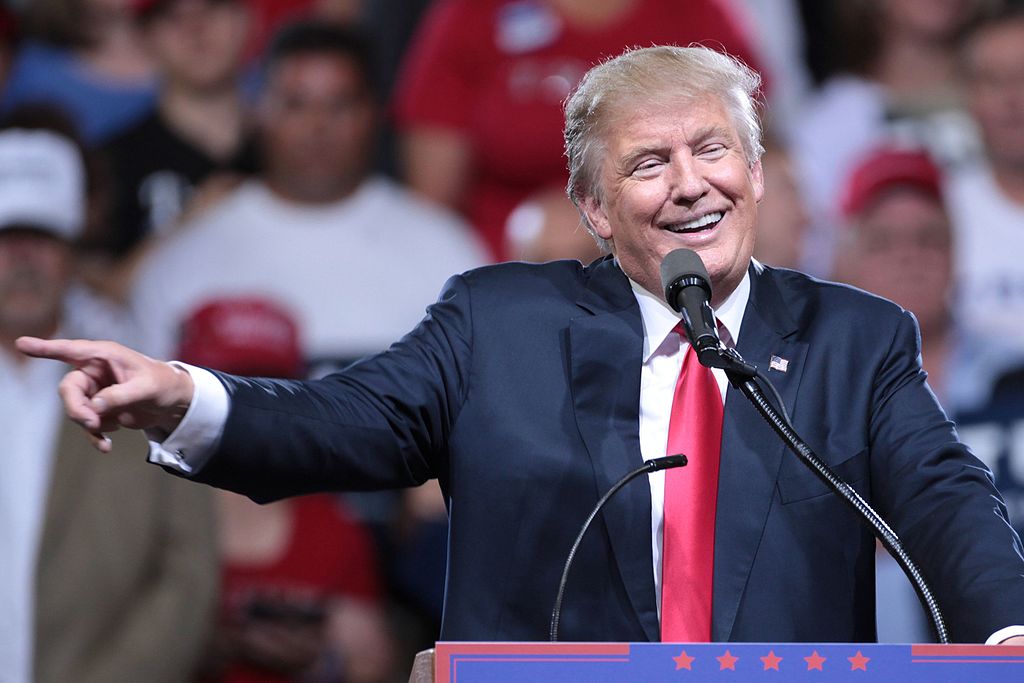As President Donald Trump prepares to commence his second term in January 2025, his administration is signaling a significant shift in defense spending priorities. Proposed budget reductions have ignited a heated debate among policymakers, military officials, and defense industry stakeholders.
Proposed Budget Reductions
The administration is considering substantial cuts to the defense budget, with some advisors advocating for reductions of up to 50%. Former Acting Defense Secretary Chris Miller, a contributor to the "Project 2025" policy document, has publicly supported such measures, arguing that they would streamline military operations and reduce federal expenditures.
Impact on Military Operations
Critics warn that drastic budget cuts could compromise the United States' global military presence and readiness. Potential consequences include the downsizing of active-duty personnel, delays in modernization programs, and reduced funding for overseas operations. Defense analysts caution that these changes may embolden adversaries and weaken alliances.
Defense Industry Concerns
The proposed budget reductions have raised alarms within the defense industry. Major contractors, including Lockheed Martin and Northrop Grumman, have expressed concerns about the potential impact on ongoing projects and future contracts. The uncertainty has led to fluctuations in defense stocks, reflecting investor apprehension about the industry's financial outlook.
Strategic Realignment
Proponents of the budget cuts argue that reallocating resources could enhance efficiency and focus on emerging threats. The administration emphasizes the need to prioritize cybersecurity, space defense, and advanced technologies over traditional military expenditures. This strategic realignment aims to address evolving security challenges in a cost-effective manner.
Congressional Response
Lawmakers are divided over the proposed defense budget cuts. Some members of Congress support the reductions, citing the need for fiscal responsibility and a reassessment of defense priorities. Others oppose the cuts, arguing that they could undermine national security and the United States' leadership role on the global stage. The upcoming budget negotiations are expected to be contentious, with both sides presenting compelling arguments.
Public Opinion
Public sentiment regarding the defense budget is mixed. Some citizens advocate for reduced military spending, favoring the allocation of funds to domestic programs such as healthcare and education. Others express concern that budget cuts could weaken the nation's defense capabilities and its ability to respond to international crises. The administration's proposals have sparked a broader national conversation about the balance between defense spending and other governmental priorities.
Conclusion
President Trump's proposed defense budget cuts for 2025 represent a significant departure from previous spending levels. While the administration argues that these reductions will lead to a more efficient and strategically focused military, critics warn of potential risks to national security and economic stability. As the debate unfolds, the nation grapples with the complex task of balancing fiscal responsibility with the imperative of maintaining a robust defense posture.



 Australia Rules Out Military Involvement in Iran Conflict as Middle East Tensions Escalate
Australia Rules Out Military Involvement in Iran Conflict as Middle East Tensions Escalate  UK Accepts U.S. Request to Use British Bases for Defensive Strikes on Iranian Missiles
UK Accepts U.S. Request to Use British Bases for Defensive Strikes on Iranian Missiles  Israel Prepares Weeks-Long Military Campaign Against Iran Amid Escalating Air Strikes
Israel Prepares Weeks-Long Military Campaign Against Iran Amid Escalating Air Strikes  U.S. Deploys Tomahawks, B-2 Bombers, F-35 Jets and AI Tools in Operation Epic Fury Against Iran
U.S. Deploys Tomahawks, B-2 Bombers, F-35 Jets and AI Tools in Operation Epic Fury Against Iran  Does international law still matter? The strike on the girls’ school in Iran shows why we need it
Does international law still matter? The strike on the girls’ school in Iran shows why we need it  Suspected Drone Strike Hits RAF Akrotiri Base in Cyprus, Causing Limited Damage
Suspected Drone Strike Hits RAF Akrotiri Base in Cyprus, Causing Limited Damage  Trump and Merz Meet at White House Amid Iran Strikes and Trade Tensions
Trump and Merz Meet at White House Amid Iran Strikes and Trade Tensions  Supreme Court Backs GOP Lawmaker in New York Redistricting Fight Ahead of Midterms
Supreme Court Backs GOP Lawmaker in New York Redistricting Fight Ahead of Midterms  Trump Says U.S. Combat Operations in Iran Will Continue Until Objectives Are Met
Trump Says U.S. Combat Operations in Iran Will Continue Until Objectives Are Met  Pentagon Downplays ‘Endless War’ Fears After U.S. Strikes on Iran Escalate Conflict
Pentagon Downplays ‘Endless War’ Fears After U.S. Strikes on Iran Escalate Conflict  Trump Says U.S.-UK Relationship Has Deteriorated After Starmer Hesitates on Iran Strikes
Trump Says U.S.-UK Relationship Has Deteriorated After Starmer Hesitates on Iran Strikes  Why did Iran bomb Dubai? A Middle East expert explains the regional alliances at play
Why did Iran bomb Dubai? A Middle East expert explains the regional alliances at play  Trump to Attend White House Correspondents’ Dinner 2026, Ending Long Boycott
Trump to Attend White House Correspondents’ Dinner 2026, Ending Long Boycott  Israel Strikes Hezbollah Targets in Lebanon After Missile and Drone Attacks
Israel Strikes Hezbollah Targets in Lebanon After Missile and Drone Attacks  U.S. Military Strikes on Iran Complicate Xi-Trump Summit and Expose China’s Energy Risks
U.S. Military Strikes on Iran Complicate Xi-Trump Summit and Expose China’s Energy Risks  Rubio Says U.S. Would Not Target School After Deadly Iran Strike Reports
Rubio Says U.S. Would Not Target School After Deadly Iran Strike Reports  U.S.-Israel War on Iran Escalates as Gulf Conflict Disrupts Oil, Air Travel and Regional Security
U.S.-Israel War on Iran Escalates as Gulf Conflict Disrupts Oil, Air Travel and Regional Security 
































